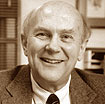Commentary on Psalm 146:5-10
Psalm 146 is the first of the five great Hallel (praise) Psalms (146-150) that conclude the book of Psalms.
All five psalms begin and conclude with the refrain, “Praise the LORD!” (verses 1a, 10b). The words gather together themes worthy of praise to the God present in the Torah, the prophets, and the writings. The lectionary selection includes only verses 5-10, and unfortunately leaves off verses 1-4, which set the tone of praise in the psalm and lead into the verses that follow in our text.
The psalmist begins with the acclamation of praise to the Lord with all of one’s life. In the season of Advent we draw near to the way in which God has manifested salvation in the birth of the Messiah, and we too proclaim, “Praise the LORD! Praise the LORD, O my soul” (verse 1). With the psalmist, we too live out our lives continually in the presence of the God who has given us the gift of life and salvation every day: “I will praise the LORD as long as I live; I will sing praises to my God all my life long” (verse 2).
The psalmist has oriented our praise to the God of all creation, calling us out of our enslavement to our earth-bound leaders, lives, and ways which are mortal, the end of which is only death:
“Do not put your trust in princes,
in mortals, in whom there is no help.
When their breath departs, they return to earth;
on that day their plans perish” (verses 3-4).
We need to hear these introductory words of praise (verses 1-2) and words of false hope (verses 3-4) so that we can hear the marvelous proclamation of the psalmist who centers our lives in the one in whom is our hope and life:
“Happy are those whose help is the God of Jacob,
whose hope is in the LORD their God” (verse 5).
In the companion text from Isaiah 35:1-10 for this Advent Sunday, the prophet likewise calls forth celebration, praise, and singing as he envisions the return of the people from captivity in Babylon (ca. 538-587 BCE). The wilderness through which they return will blossom forth as the glory of God is present with those who return. This is the God of strength for the infirm, giver of sight to the blind, and the one in whom joy and gladness break forth as “sorrow and sighing shall flee away” (verse 10).
The Magnificat of Mary (Luke 1:46b-55) is one of the gospel texts for this Advent Sunday. In the same way Mary proclaims praise to the God of salvation: “My soul magnifies the Lord, and my spirit rejoices in God my Savior” (verse 47). Mary’s psalm of praise continues to extol the God whose promise of salvation comes to fulfillment in the birth of the child in her womb.
As we return to our psalm for this Sunday we see and hear the majesty of these texts and psalms of praise and their relationship to that which God now brings to fulfillment in this season of Advent. This is the God —
“who made heaven and earth,
the sea, and all that is in them;
who keeps faith forever;
who executes justice for the oppressed;
who gives food to the hungry” (verses 6-7a).
Mary’s Magnificat echoes the same refrains:
“His mercy is for those who fear him
from generation to generation.
He has shown strength with his arm;
he has scattered the proud in the thoughts of their hearts.
He has brought down the powerful from their thrones,
and lifted up the lowly;
he has filled the hungry with good things,
and sent the rich empty away” (verses 50-53).
Our God, who is the LORD of the psalmist and Mary, is the God of justice among all peoples as the psalmist proclaims:
“The LORD sets the prisoners free;
the LORD opens the eyes of the blind.
The LORD lifts up those who are bowed down;
the LORD loves the righteous.
The LORD watches over the strangers;
he upholds the orphan and the widow,
but the way of the wicked he brings to ruin” (verses 7b- 9).
In the alternative gospel reading for this Sunday from Matthew 11:2-11, John the Baptist is in prison for his proclamation of the Messiah. He sends a question by his disciples to ask of Jesus: “Are you the one who is to come or shall we wait for another?” (verse 3). Jesus’ response expands the words of the psalmist and Mary: “Go and tell John what you hear and see: the blind receive their sight, the lame walk, the lepers are cleansed, the deaf hear, the dead are raised, and the poor have good news brought to them. And blessed is anyone who takes no offense at me” (verses 4-6).
The texts for the Third Sunday of Advent proclaim the Word with clarity in the one who has made the heaven and earth; the one who brings to fulfillment the promises to Jacob and all Israel; the one who executes justice and righteousness for all people; the one in whom we receive healing for all our infirmities; the one in whom is our hope for all generations; the one who will reign forever; and the one who is present in the promises of these words as we live into this season of the Advent of our Lord and Savior, Jesus Christ.
These are the messianic words of hope and life in the one, Jesus Christ. And so we conclude our words of proclamation and praise in the words of our psalm. God’s reign is eternal in the one who has conquered death and risen victorious that we might sing a new song now and for eternity:
“The LORD will reign forever,
your God, O Zion, for all generations.
Praise the LORD!” (verse 10).

December 12, 2010